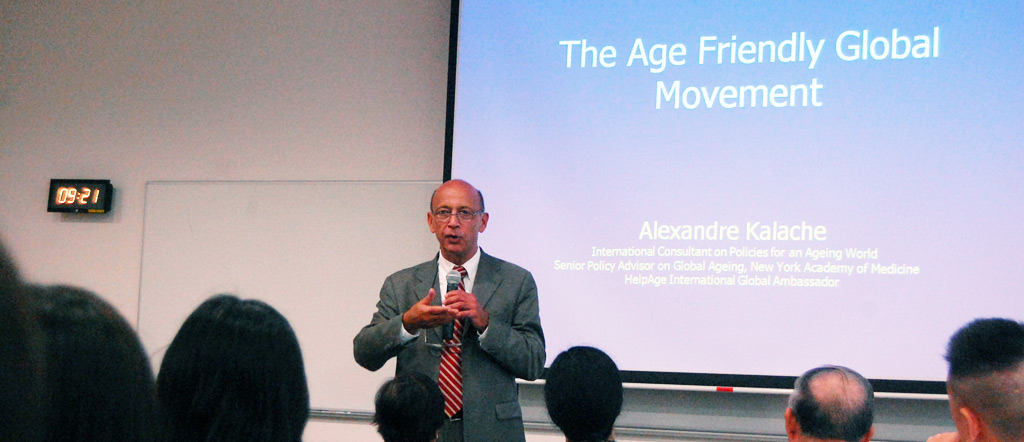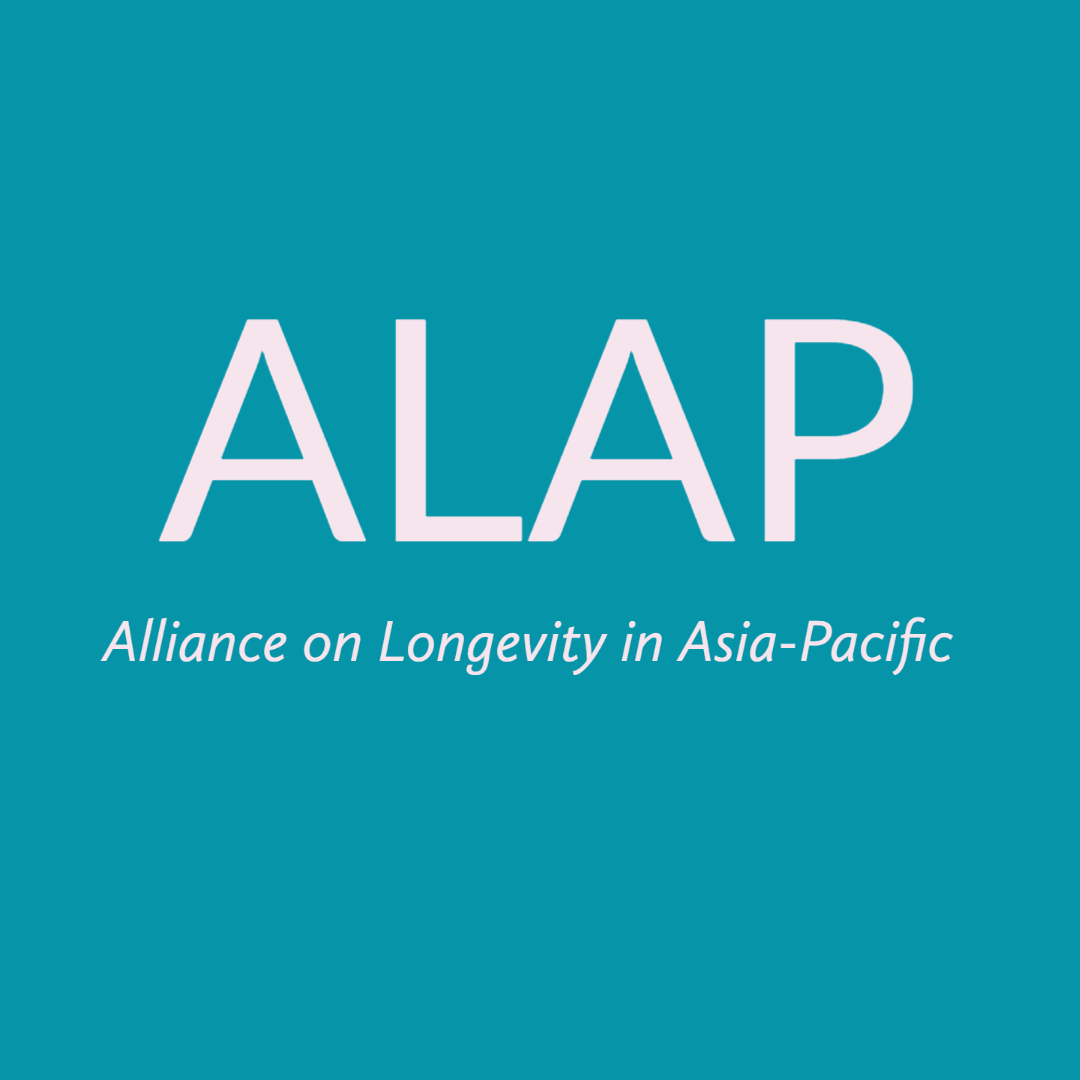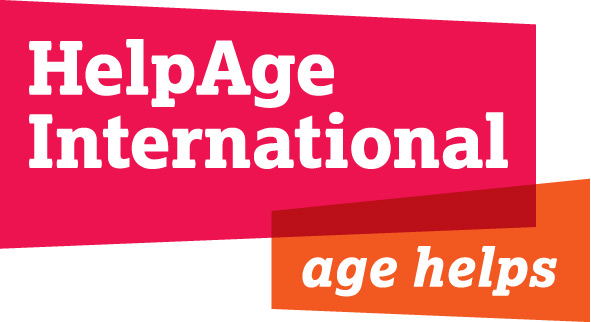

Global Partnerships
Since its inception the Tsao Foundation has developed an international network of partnerships to collaborate on new approaches to shared concerns and opportunities around global population ageing.
 The Alliance on Longevity in Asia-Pacific (ALAP) is a regional coalition formed in August 2022, dedicated to addressing ageing and longevity-related issues in the Asia-Pacific region. With the region experiencing rapid population ageing, ALAP aims to promote mutual learning and collaboration among various organisations working on these concerns. The focus areas include healthy ageing, long-term care, income security, intergenerational initiatives, and gender and ageing. ALAP's membership includes non-governmental organisations, academic institutions, foundations, and social enterprises committed to supporting older people. While still in its early stages, ALAP holds learning events and seeks funding for projects on community-based organizations, long-term care, and older women's financial security. ALAP welcomes new members and operational partners to join their cause in creating positive change for older individuals in the region.
The Alliance on Longevity in Asia-Pacific (ALAP) is a regional coalition formed in August 2022, dedicated to addressing ageing and longevity-related issues in the Asia-Pacific region. With the region experiencing rapid population ageing, ALAP aims to promote mutual learning and collaboration among various organisations working on these concerns. The focus areas include healthy ageing, long-term care, income security, intergenerational initiatives, and gender and ageing. ALAP's membership includes non-governmental organisations, academic institutions, foundations, and social enterprises committed to supporting older people. While still in its early stages, ALAP holds learning events and seeks funding for projects on community-based organizations, long-term care, and older women's financial security. ALAP welcomes new members and operational partners to join their cause in creating positive change for older individuals in the region.
For inquiries, interested parties can contact the ALAP Secretariat at alap@tsaofoundation.org.
 The new Global AgeWatch Index launched on 1 October 2014, the UN International Day of Older Persons. The Index measures how well 96 countries are supporting their older populations. This year, Norway comes first, replacing Sweden from last year. Apart from Japan, all the top 10 countries are again in Western Europe, North America and Australasia. Afghanistan comes bottom again. View it here.
The new Global AgeWatch Index launched on 1 October 2014, the UN International Day of Older Persons. The Index measures how well 96 countries are supporting their older populations. This year, Norway comes first, replacing Sweden from last year. Apart from Japan, all the top 10 countries are again in Western Europe, North America and Australasia. Afghanistan comes bottom again. View it here.
The Tsao Foundation is a member of HelpAge International, a UK-based international NGO serving disadvantaged older people worldwide. From 1997 to 2001, our Foundation's President, Dr Mary Ann Tsao, was a member of the Board of HelpAge International, and its Chairperson from 2001 to 2003.
Through Dr Tsao, the Foundation has also been present at various United Nations initiatives on ageing. She served on the Technical Committee in drafting the Plan of Action for the United Nations Second World Assembly on Ageing held in Madrid, 2002. In 2007, she was one of three international experts invited to address the United Nation’s 45th session of the Commission on Social Development to launch the fifth year review of the Madrid International Plan of Action on Ageing (MIPAA+5).
The Foundation has been a regular participant at the UN ESCAP(Economic and Social Commission for Asia and the Pacific) committee on ageing since 2002 – by being part of the technical working groups and inter-governmental meetings.
![]() Within the Foundation, a division named 'Inter-agency Collaboration' was dedicated to building regional and international partnerships as a platform for promoting the interests of older persons. In September 2009, that became ILC Singapore as Tsao Foundation entered the prestigious International Longevity Centre Global Alliance. The mission of the multi-national consortium is to help societies address longevity and population ageing through research and action.
Within the Foundation, a division named 'Inter-agency Collaboration' was dedicated to building regional and international partnerships as a platform for promoting the interests of older persons. In September 2009, that became ILC Singapore as Tsao Foundation entered the prestigious International Longevity Centre Global Alliance. The mission of the multi-national consortium is to help societies address longevity and population ageing through research and action.
Accordingly, ILC-S implements innovative community development programmes and research collaborations with the potential for regional and international capacity building.
The Citi-Tsao Financial Literacy Programme for Mature Women, for example, has been replicated in Indonesia and Malaysia. The seed for SCOPE (Self-care on Health of Older Persons) was planted when the Foundation led the health working group within the Help Age (Asia Pacific) Network.

